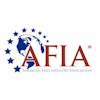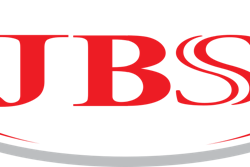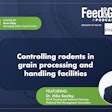
When we look at businesses in general and almost all organizations involving people, we must recognize and attend to two aspects that focus on relationships. The first is the formal organization structure – often outlined as an organization chart showing the hierarchy of leadership and management in your feed or grain business. But the formal organizational structure cannot possibly control all of the personal relationships in your firm.
When people come together, informal relationships develop that significantly impact the formal organization’s effectiveness. The informal organization is primarily concerned with interpersonal relationships among people: their emotions, feelings, communications and values. Many industry experts describe this as the culture and climate of your business.
Business management experts have several definitions of company culture. One is that “company culture is the shared values, attributes and characteristics of the firm.”
A more specific description is how your employees feel about their work, the values they believe in, and where they see the company going and what your firm is doing to get it there. All of that may sound a bit “lofty,” but the people who work for you must believe in your feed or grain business. Your company is their employer, and they have the right to want to be proud working for you.
Below are several key steps that can improve company culture as well as the profitability of your business and make your life as a manager more satisfying and productive.
Communicate purpose and passion
A good mission statement for your firm is vital. It is where you can begin to communicate your business’s purpose and passion to your employees, your customers and the general public. Having a good mission statement is an excellent starting point for something that your employees can buy into and believe in — it provides the basis for these “shared values.”
Studies by The Science of Purpose indicate that when people believe that their work matters, they are four times more likely to be engaged, more motivated and more fulfilled. If your feed or grain business does not have a mission statement, it is worth considering putting one together and communicating it to your employees. The statement provides a “rallying point” for your company’s work and a purpose for your firm.
Recognize and reward valuable contributions
Companies that emphasize a recognition-rich culture tend to have a lower employee turnover rate. It turns out that employees who don’t feel recognized are two times more likely to quit their job, while the top 20% of companies with solid recognition programs have a 31% lower turnover rate. How do you put something like this into practice? Identify specific behaviors and results aligned with your company’s goals and values and then recognize and reward those behaviors as often as you can. Rewards can range from an employee of the week/month to employee awards to annual bonuses.
Cultivate strong co-worker relationships
Building strong co-worker relationships takes time, effort and sometimes dedicated teambuilding activities. People often look at such actions with a groan or a funny comment. But, the reality is that shared experiences can lead to strengthening the informal organization we mentioned earlier. Teambuilding activities can be fun and help build the bonds that lead to a more productive organization. Bonusly describes itself as “an engaging recognition and rewards platform that enriches your company culture" and has some innovative and useful teambuilding ideas.
Practice flexibility
The COVID pandemic has forced many companies to implement creative and flexible work structures and locations for some employees.
Many of these same firms are finding value and productivity in this new paradigm. Adding workplace flexibility can improve morale and reduce turnover. Flexibility can mean many things — allowing parents time to participate in school events during the workday, work at home arrangements or offering mini-sabbaticals. Offering flexibility builds employee loyalty. A 2019 study by Airtasker found that remote employees worked 1.4 days more each month compared to their in-office counterparts, which equates to 16.8 days of additional work per year.
Embrace transparency
Transparency assists in cultivating positive company culture. What makes up transparency? Communication, collaboration and trust are the critical building blocks of transparency. Sharing both positive and negative things in a timely and effective manner helps build trust.
The point here is to share successes. Recognizing these can be a significant motivation boost for your team. You also can share the challenges your feed or grain business faces. When employees know some of the challenges you are facing, you present them with the opportunity to come up with solutions together.
A manager may facilitate daily communication via e-mail. Periodic employee meetings provide additional communication opportunities — where more significant initiatives and issues can be laid out and discussed.
A manager can assist collaboration formally by assigning employees to project teams to accomplish stated goals. It can also be strengthened by teambuilding activities as outlined above. Trust emanates from you as manager:
- Do you keep your word? Do you follow up on promises made to employees or items you have agreed to do?
- Do you instill confidence in your actions?
- Do you embrace flexibility (as discussed above), are you open to suggestions and do you work hard to be inclusive?
Conduct a survey
One way to determine what your employees think about your company culture is to ask them. A simple survey can collect perceptions from those who work for you – on items of importance.
Consider questions that give you a “benchmark” for their thoughts today. If you implement some of the activities/actions we have discussed, you can do a follow-up in the future to see if you have “moved the needle” on items of importance to your employees.
Think about the survey format so that you obtain the most helpful information. You want your employees to be honest with you to identify those things that are frustrating your employees and change them.
Employees are only going to reveal this information if they are entirely confident that the survey is anonymous.
We have seen surveys where the intent was anonymous responses only to find a question asking about demographic characteristics of the respondent (which make the survey no longer anonymous).
Give and solicit regular feedback
Employee evaluations are one way to give (and receive) feedback. However, typically they occur on an annual basis and this is not sufficient in terms of helping employees with the tools they need to grow and improve.
Providing frequent, candid feedback is suitable for both parties. It allows you to reward good behavior in real time. Taking mid-level managers to coffee or scheduling a lunch with them helps set the stage for an informal discussion.
One easy way to engage employees regarding their thoughts on company culture is to do a quick survey. Bonusly suggests several insightful questions for a potential employee engagement survey.
Create the company culture you want
A company’s culture and climate will exist whether you do anything to influence it or not.
Realizing that it can have either a positive or negative impact on the performance of your feed and grain business, we hope that we have provided some things you might implement to improve your firm’s informal organization or social environment.


















